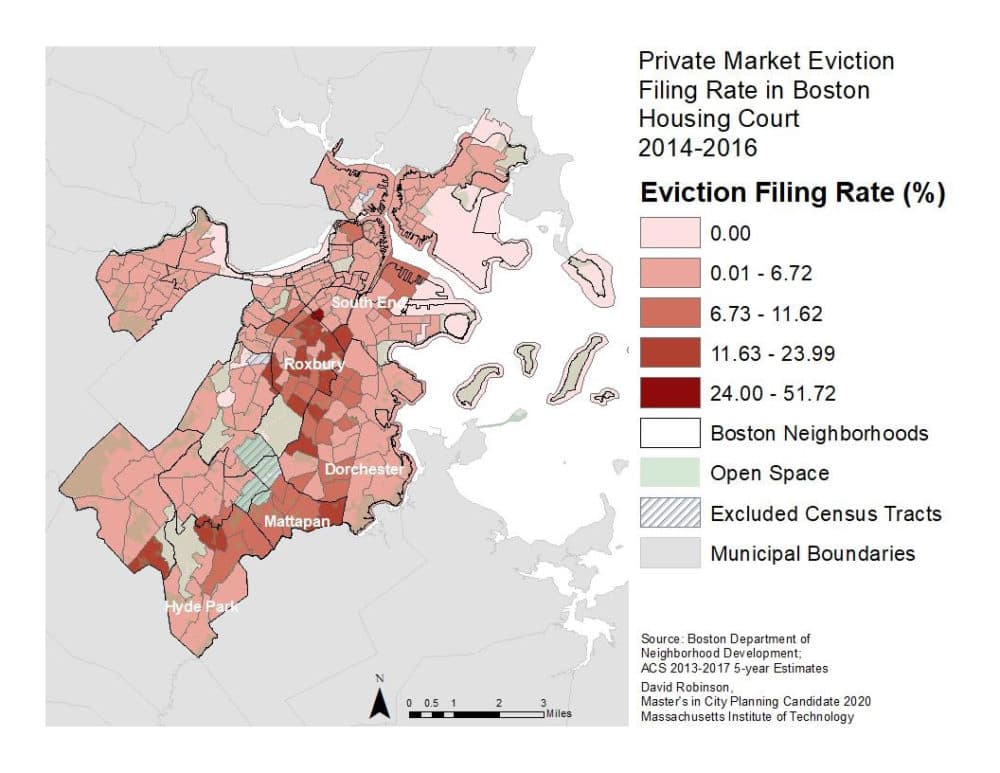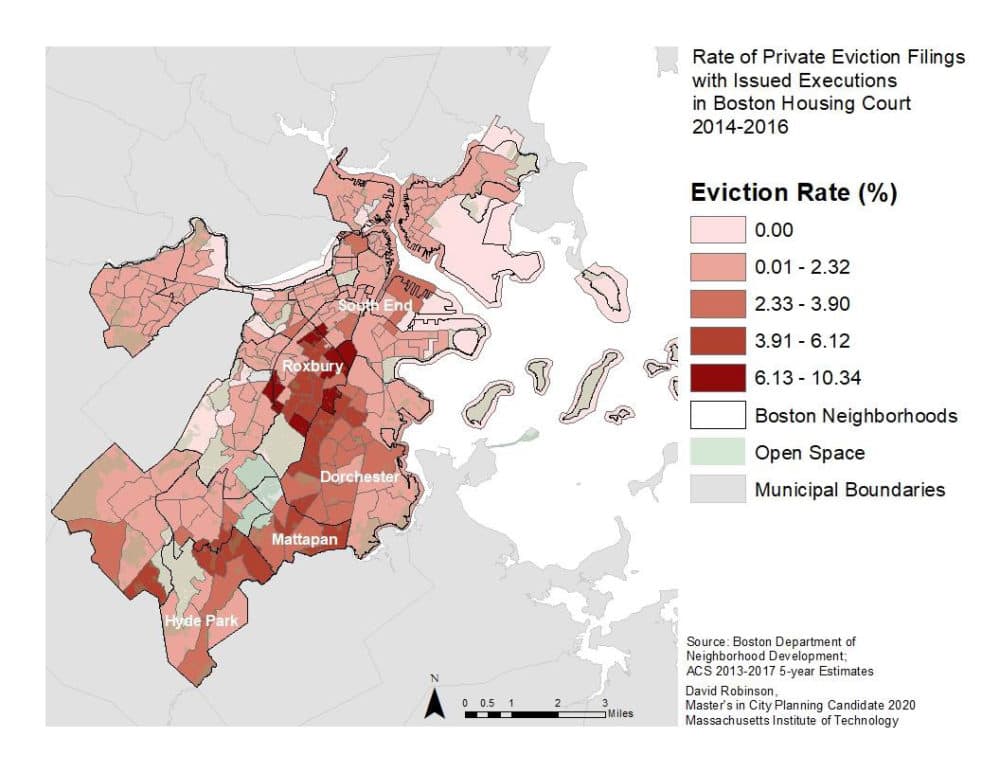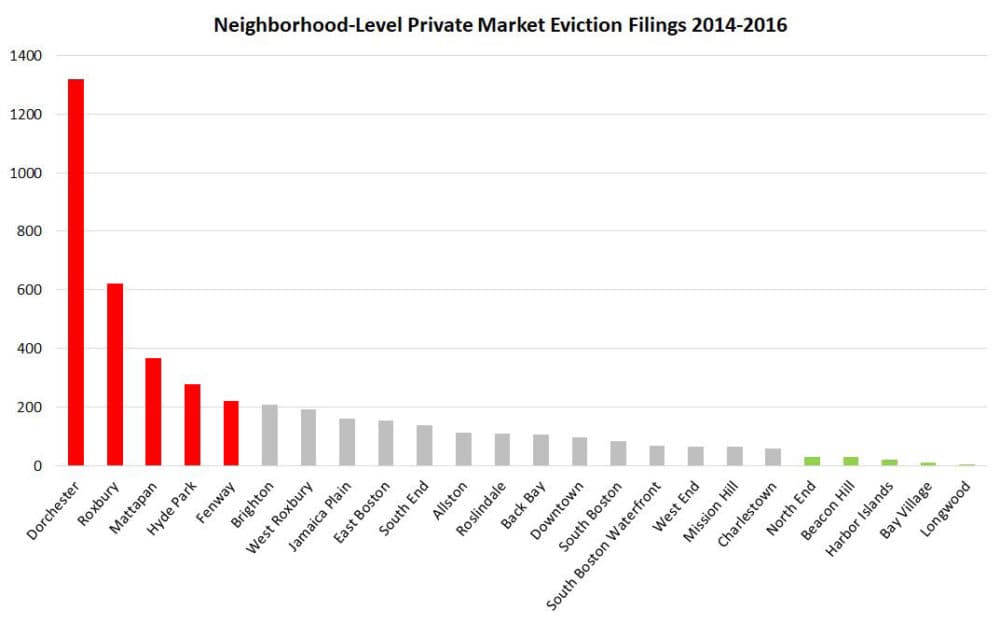Advertisement
MIT Study: Boston Evictions Happening 'Orders Of Magnitude' More In Low-Income Neighborhoods
ResumeEvictions in Boston are happening at rates "many orders of magnitude" higher in low-income, majority nonwhite neighborhoods than in more affluent neighborhoods, according to new research from MIT grad student David Robinson.
“In Roxbury, which is the Boston neighborhood with the highest private market eviction rate, one in 10 private market units had an eviction filing over three years,” Robinson said.
Compare that to Beacon Hill, the neighborhood with the lowest private market eviction rate, where just one in 100 units had an eviction filing between 2014 and 2016, the latest years for which eviction data is available, according to Robinson.
“That's a difference of 10 orders of magnitude between Roxbury and Beacon Hill,” he said.

Robinson is a master’s student at MIT's Department of Urban Studies and Planning.
The investigation into disparities in eviction rates is being done in conjunction with the housing advocacy group City Life/Vida Urbana, drawing on eviction data compiled by Boston’s Department of Neighborhood Development. The full findings will be published in early 2020, Robinson said.
The study draws a distinction between eviction filings and eviction executions. Robinson said execution rates show an even greater disparity than filings — execution rates are 15 times higher in Roxbury than in Beacon Hill.
"So not only is there a difference between Roxbury and Beacon Hill and filings, but that difference is exacerbated when it comes to executions, which means that people from those neighborhoods, once they actually get to housing court, are much more likely to have an executed eviction," Robinson said.

The report also looks at the race demographics of the neighborhoods where people are getting evicted, though Robinson said more work needs to be done before he can establish whether there's a correlation between race and evictions.
“This could be a racial issue, this could be an income issue ... it could be both,” he said. “But regardless, it's impacting these low-income, majority nonwhite neighborhoods at a magnitude that's really significant.”

More recent eviction data will soon be released by the city, said Sheila Dillon, chief of Housing and Director of Neighborhood Development in Boston.
There’s some good news on eviction rates in 2017 — at least in the private market, according to Dillon. She said her office has been working closely with owners of large subsidized developments, and among the major players there have been "very significant decreases in evictions.”
“In some cases, it's just making owners aware that that, one, they have these rates of eviction, and two, there are resources available if tenants got behind in their rent,” Dillon said.
Some housing advocates said housing court filings could be telling just part of the eviction story. That’s because the city has no way to track “notices to quit,” or other ways tenants are displaced without going to court.
This segment aired on November 13, 2019.
